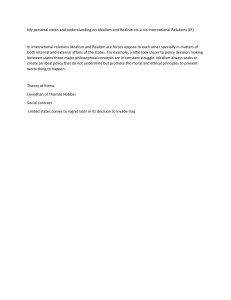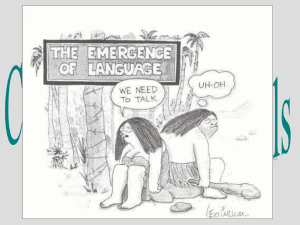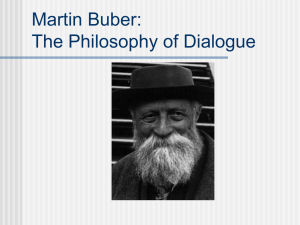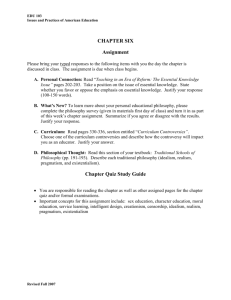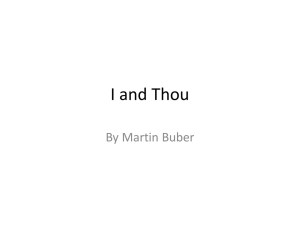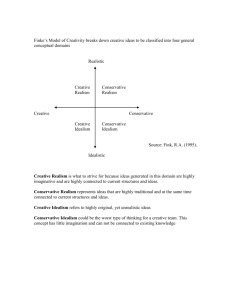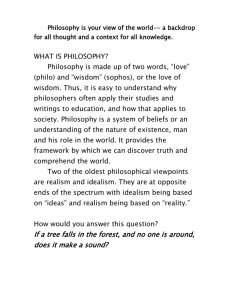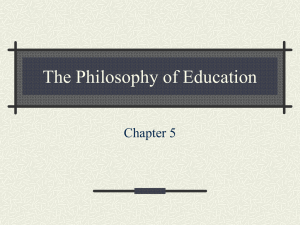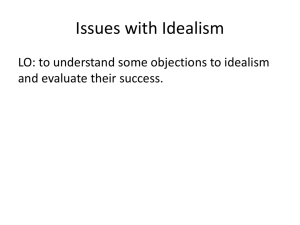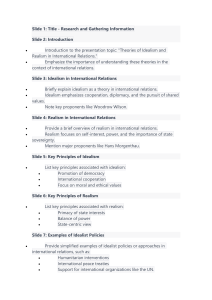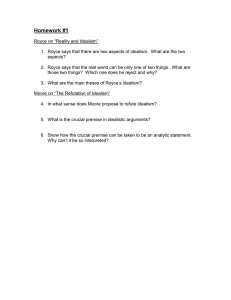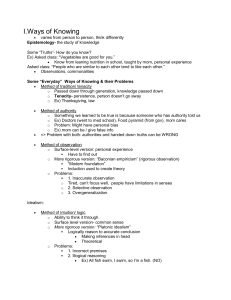Danielle Parkka Secondary Classroom Methods My Teaching
advertisement
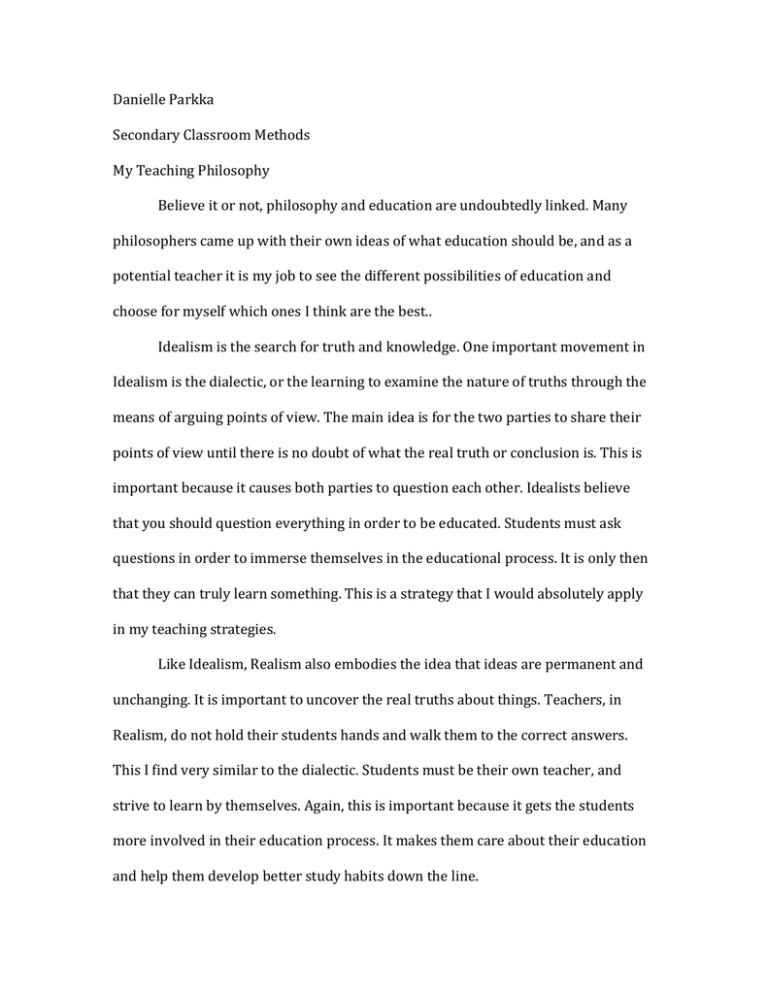
Danielle Parkka Secondary Classroom Methods My Teaching Philosophy Believe it or not, philosophy and education are undoubtedly linked. Many philosophers came up with their own ideas of what education should be, and as a potential teacher it is my job to see the different possibilities of education and choose for myself which ones I think are the best.. Idealism is the search for truth and knowledge. One important movement in Idealism is the dialectic, or the learning to examine the nature of truths through the means of arguing points of view. The main idea is for the two parties to share their points of view until there is no doubt of what the real truth or conclusion is. This is important because it causes both parties to question each other. Idealists believe that you should question everything in order to be educated. Students must ask questions in order to immerse themselves in the educational process. It is only then that they can truly learn something. This is a strategy that I would absolutely apply in my teaching strategies. Like Idealism, Realism also embodies the idea that ideas are permanent and unchanging. It is important to uncover the real truths about things. Teachers, in Realism, do not hold their students hands and walk them to the correct answers. This I find very similar to the dialectic. Students must be their own teacher, and strive to learn by themselves. Again, this is important because it gets the students more involved in their education process. It makes them care about their education and help them develop better study habits down the line. As a teacher not only should I think about the way I present myself but how I also present my classroom. In Behaviorism things such as environment are very important. If students are not inspired or excited to learn then they will have a more difficult time picking up on concepts. Teachers should inspire their students to learn the second they walk into the classroom. They should also try and learn their student’s behaviors so they can pick up the “vibe” of the classroom. Sometimes students get tired or they get bored learning a certain topic. Teachers need to be able to pick up on this and rectify the situation. If teachers can learn how to do this then they will have a very important power and ability over their classroom. As well as understanding their environment, teachers need to be able to assess their relationship with their students. In Existentialism, the philosopher Buber talks about a I-Thou relationship and a I-It relationship. In an I-Thou relationship we respect the uniqueness of other individuals, and make an effort to treat them as we would treat ourselves. This is how teachers should view their students. Some teachers see their students through the eyes of an I-It relationship, which is when we treat others as objects. Sometimes in big classrooms students get overlooked and ignored. It is important as a teacher to remember that these students are unique individuals who have their own way of learning. They need to be treated with respect and uniqueness. Each individual student has his or her own way of viewing things, and teachers must take that into consideration. One thing to take away from Analytic philosophy is the idea that language can sometimes get in the way, unless it is used properly. Teachers are constantly communicating so it is important that they know how to really get their point or their topic across. They should also pay close attention to how students get their point across, so that they can better understand how each of their students learns. The teacher student relationship heavily relies on the ability of the teacher and students to communicate correctly. Without this clear communication the learning process would be tarnished, and the students would end up struggling in the end. Reaching back in time to the philosophies of the past can really inspire new and better teaching methods. Teachers could really draw inspiration from these wonderful ideas and teachings if only they would open their minds to the possibilities.
